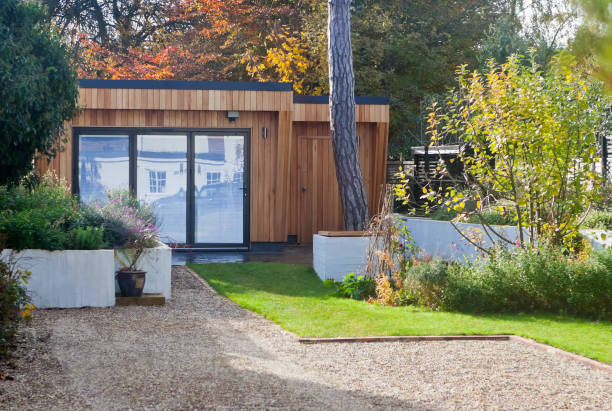Introduction
The beauty of a home extends far beyond its interior design. Exterior elements define first impressions, influence curb appeal, and contribute to long-term property value. Among these architectural details, exterior cedar shutters stand out as a classic yet versatile choice. Known for their natural charm, resilience, and timeless appeal, cedar shutters have graced homes for centuries.
Homeowners today are rediscovering their benefits, not just for aesthetic reasons but also for durability and practicality. Whether installed for decorative purposes or functional use, cedar shutters can instantly elevate the appearance of any home.
Why Choose Exterior Cedar Shutters?
There are many reasons why cedar shutters remain popular despite the arrival of modern alternatives:
- Natural Durability: Cedar resists decay, moisture, and insect damage better than many other woods.
- Insulation Properties: Wooden shutters help regulate indoor temperatures.
- Aesthetic Appeal: Warm wood tones and unique grain patterns enhance exterior beauty.
- Customizability: They can be painted, stained, or left unfinished for a natural look.
- Long-Term Value: With proper care, cedar shutters last for decades.
Historical Background of Cedar Shutters
Cedar shutters have a rich heritage. Historically, they were used to protect homes from storms, sunlight, and intruders. In colonial America, shutters became a common feature on farmhouses and estates. Their rustic strength combined with beauty ensured their place in architecture for centuries.
Today, while modern homes often install shutters for decorative purposes, cedar’s strength continues to offer genuine protection when designed functionally.
Styles of Exterior Cedar Shutters
Louvered Cedar Shutters
Featuring horizontal slats, louvered shutters allow airflow while providing shade. They remain one of the most traditional choices.
Board and Batten Cedar Shutters
Rustic in style, these shutters consist of vertical boards secured by horizontal battens. They suit farmhouses, cabins, and country homes beautifully.
Raised Panel Cedar Shutters
With a more formal appearance, raised panels are ideal for colonial and Georgian-style homes. Their solid design adds depth and character.
Flat Panel Cedar Shutters
Sleek and simple, flat panels provide a modern touch while retaining cedar’s natural warmth.
Combination Styles
Some shutters combine louvers with panels, offering a mix of functionality and elegance.
Finishing Options for Cedar Shutters
- Natural Finish: Allows the wood grain to shine while blending with rustic designs.
- Stain: Enhances cedar’s tones while offering UV protection.
- Paint: Provides endless color possibilities for matching or contrasting home exteriors.
- Weathered Look: Some homeowners prefer to let cedar age naturally into a silver-gray patina.
Benefits of Installing Exterior Cedar Shutters
- Enhanced Curb Appeal: They add charm, character, and personality to a home.
- Longevity: Cedar lasts longer than many other woods in exterior applications.
- Energy Efficiency: Functional shutters provide shade, helping reduce cooling costs.
- Increased Property Value: Buyers appreciate the classic look of cedar.
- Versatility: Suitable for various home styles, from rustic cottages to urban townhouses.
Comparing Cedar Shutters with Other Materials
Cedar vs. Vinyl
Vinyl shutters require less maintenance but lack the authentic warmth and durability of natural wood.
Cedar vs. Composite
Composite shutters mimic wood but don’t weather as gracefully as cedar.
Cedar vs. Pine
While pine is cheaper, cedar outperforms it in durability and resistance to decay.
Cedar vs. Aluminum
Aluminum offers strength but often feels too industrial compared to cedar’s natural elegance.
Installation of Exterior Cedar Shutters
Tools and Materials Needed
- Measuring tape
- Drill and screws
- Shutter hardware (hinges, bolts, or brackets)
- Level
- Sealant or paint
Step-by-Step Process
- Measure Windows: Ensure shutters are proportional to the window size.
- Pre-Finish Shutters: Apply stain or paint before installation for even coverage.
- Attach Hardware: Use hinges for functional shutters or brackets for decorative ones.
- Mount Shutters: Align carefully to achieve symmetry.
- Final Touches: Seal exposed edges for protection.
Maintenance of Exterior Cedar Shutters
- Regular Cleaning: Use mild soap and water to remove dirt.
- Re-Staining or Repainting: Every few years, refresh the finish to protect against UV damage.
- Sealant Application: Apply clear sealants for added moisture protection.
- Inspection: Check hardware and wood integrity annually.
Design Inspirations for Cedar Shutters
Coastal Homes
White-painted cedar shutters pair beautifully with pastel-colored exteriors.
Rustic Cabins
Unfinished cedar with its natural tone complements log or stone exteriors.
Urban Townhouses
Black or dark-stained cedar shutters create striking contrast against brick facades.
Farmhouses
Board and batten shutters enhance traditional countryside charm.
Eco-Friendly Benefits of Cedar Shutters
Cedar is a renewable resource and biodegradable. Its natural oils reduce the need for chemical treatments. By choosing cedar, homeowners contribute to sustainable building practices while enjoying long-lasting performance.
Cost of Exterior Cedar Shutters
Pricing varies depending on size, design, and finish. On average:
- Basic Board and Batten: $100–$150 per pair
- Louvered or Panel Styles: $200–$400 per pair
- Custom Designs: $500 and above
While cedar shutters may cost more than vinyl or pine alternatives, their longevity often makes them more cost-effective over time.
Common Challenges with Cedar Shutters
- Weathering: Without maintenance, cedar develops a gray patina.
- Initial Cost: Higher than some alternatives, though justified by durability.
- Insect Exposure: While naturally resistant, untreated cedar may still attract pests.
- Installation Skill: Precise installation requires careful measurement.
Modern Trends in Cedar Shutters
- Mixing Materials: Pairing cedar with steel hardware for a rustic-industrial look.
- Bold Colors: Homeowners increasingly paint cedar shutters in vibrant hues.
- Eco-Friendly Finishes: Low-VOC paints and stains are growing in popularity.
- Smart Home Integration: Some functional shutters are now designed with automation.
How to Choose the Right Cedar Shutters
- Match style with your home’s architecture.
- Consider local climate conditions.
- Decide between decorative or functional use.
- Choose finishes that balance beauty and protection.
- Compare prices from multiple vendors.
Where to Buy Exterior Cedar Shutters
- Home Improvement Stores: Many stock standard sizes and styles.
- Online Retailers: Provide wider customization options and direct shipping.
- Custom Woodworkers: Ideal for unique designs or non-standard windows.
- Local Lumber Yards: Offer raw cedar for DIY projects.
Frequently Asked Questions
Q1: How long do exterior cedar shutters last?
With proper maintenance, cedar shutters can last 20–30 years or more.
Q2: Do cedar shutters need to be sealed?
Yes, sealing or finishing is essential to prevent premature weathering.
Q3: Can cedar shutters be painted any color?
Absolutely. They can be painted, stained, or left natural.
Q4: Are cedar shutters resistant to termites?
Cedar’s natural oils repel many insects, including termites.
Q5: Do cedar shutters require a lot of maintenance?
They need occasional cleaning and refinishing, but maintenance is manageable.
Q6: Are cedar shutters environmentally friendly?
Yes, cedar is renewable, biodegradable, and requires fewer chemical treatments.
Q7: Can I install cedar shutters myself?
Yes, with the right tools and preparation, many homeowners opt for DIY installation.
Q8: Will cedar shutters increase my home’s value?
Yes, they add timeless charm and boost curb appeal, which attracts potential buyers.
Q9: What’s the difference between decorative and functional cedar shutters?
Decorative shutters are fixed, while functional ones can open and close for protection.
Q10: How often should cedar shutters be refinished?
Typically every 3–5 years, depending on exposure to sun and weather.

